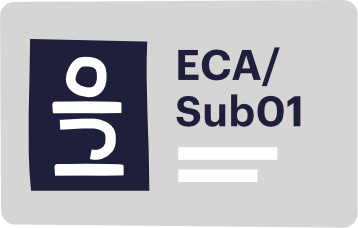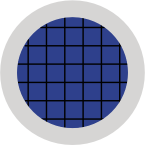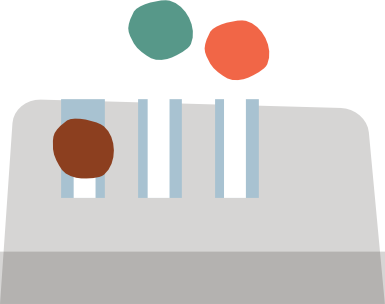
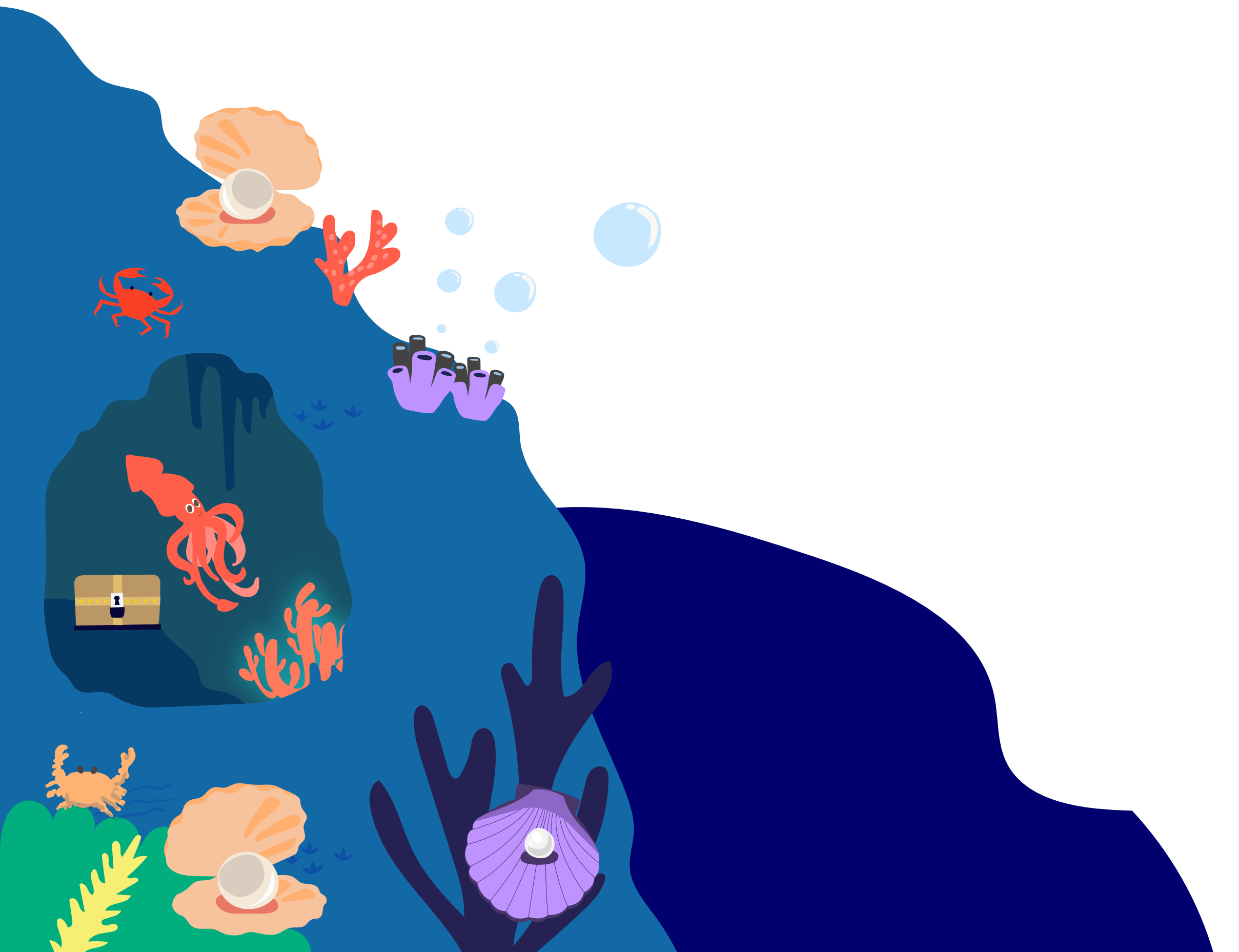
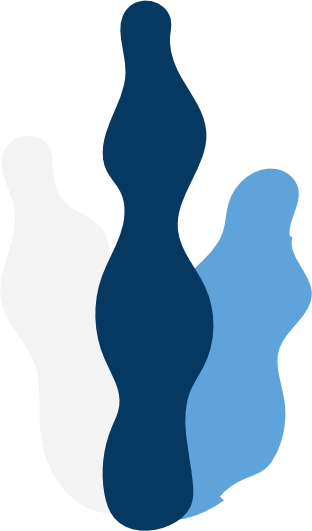

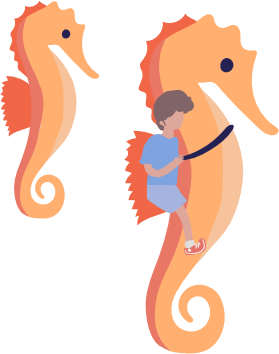

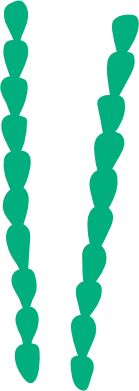



This is where you can explore our 2024 achievements
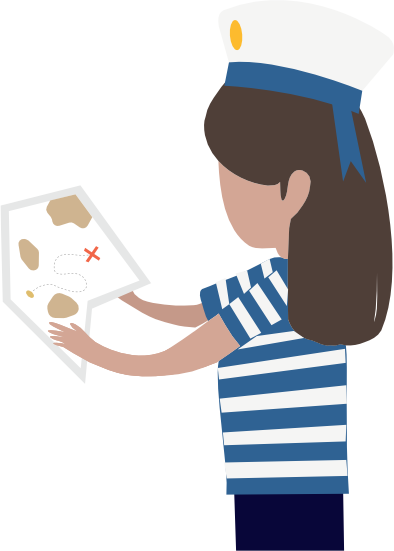
Filter achievements by ECA:Programs
Now viewing 0/98 achievements
Programs /The Safety Concern Portal has successfully gone live, offering robust tools and mechanisms for reporting concerns related to child abuse and substance abuse.
The “Dama Al-Aman” training program has been implemented in schools and nurseries through collaboration between the Ministry of Education and the Department of Education and Knowledge, aiming to enhance the child protection system and prepare qualified educational staff to ensure the safety and well-being of children.
Program Achievements:
Department of Education and Knowledge:
- Graduating the first 9 cohorts, consisting of (197) participants, including school principals, vice principals, child protection specialists, counselors, and teachers.
- Training 10 current cohorts from nurseries, comprising (250) participants.
- Ministry of Education:
- Training more than 1,500 employees in the initial phases, including teaching and non-teaching staff.
- Completing training for 11 additional cohorts, consisting of (275) participants from school leadership, including principals and vice principals.
This achievement represents a pivotal step towards strengthening the child protection system in Abu Dhabi, as the program aims to prepare qualified educational staff to prevent child abuse and enable them to identify and handle cases efficiently, including reporting them according to leading practices. This progress is part of a strategic vision to expand the scope of training to include all schools and nurseries in the emirate, ensuring a safe and supportive educational environment for children and enhancing their well-being and protection on all levels.
FCA and ECA have finalized the Child Center Standard Operating Procedures and developed comprehensive training materials. All staff members have been trained on these procedures, ensuring alignment with leading practices in managing child protection.
The CPIMS framework, including tools for perpetrator tracking, was delivered for adoption in FCA's ICM system. The Child Center SoP was expanded to all centers to enhance collaboration with police and social workers. ECA and FCA are developing monitoring measures and KPIs to ensure child safety and manage perpetrators effectively.
Secured high-level approval and endorsement from key stakeholders, for the Child Maltreatment Procedure Guide for the Health Sector, featuring a comprehensive, competency-based four-tier training framework. Developed in collaboration with global and local experts, the framework integrates leading practices and tailored resources.
Developed and shared 10 child helpline content guides for frontliners addressing key issues like anxiety, self-harm, depression, eating disorders, and bullying. These guides support hotline, helpline, and school-based teams, ensuring effective responses to critical child protection concerns.
The Child Center, established in partnership with the Family Care Authority, integrates social workers, police, prosecutors, and medical professionals to deliver high-quality services to abused children. In its six-month pilot, the center managed cases, developed quality standards, and provided specialized training for partners. This model has resulted in increased referrals and faster resolution of child protection concerns, ensuring their safety and well-being.
The Comprehensive Child Protection Strategy (2025-2030) for Dama Al-Aman was completed, in collaboration with DCD and key partners. Fully aligned with the Dama Al Aman Policy, the strategy includes strong monitoring mechanisms, quality assurance, and budget frameworks.
Developed the Cross-Sectoral Mental Health Guidelines, which aim to enhance children’s well-being by integrating mental health support into schools, healthcare, and family environments. Developed with key stakeholders, including MOE, ADEK, DoH, and ADPHC, the guidelines provide resources for educators, health practitioners, parents, and caregivers. Aligned with DoH’s priorities and Sakina’s mission, they support early intervention, improve referral pathways, and ensure sustainable, child-centered mental health care across Abu Dhabi.
Developed and launched an integrated collaboration forum bringing together universities, employers, and partners, with content based on global leading practices. The first two editions were held this year and two communication channels were created.
Building on the Human Capital sponsorship strategy developed in 2023, we sponsored 10 Master's scholarships at UAE University for the second cohort in 2024. We also supported the ECD elective course for students in its second year and encouraged universities to incorporate ECD specializations into their academic plans.
The design concept for the Social Work Upskilling Program for unemployed graduates was developed, and the pilot was launched with UAEU, ZU, GU, and CERT. 16 participants completed coursework and practicum components. Key milestones include finalizing partnerships, delivering six courses on ECD and social work, securing field experience placements, and initiating discussions with DCD for licensure support.
Developed and conducted 8 upskilling training programs for ECD practitioners across 42 cohorts with 1,008 participants, in collaboration with national and international universities. The programs received support from 12 key stakeholders, ensuring broad collaboration and impact.
Completed training of the first pilot cohort of the induction program in collaboration with FCA on ECD induction. The ECD Induction is a program developed in collaboration with CERT-HCT targeting recent graduates of ECD related fields and recent employees who do not have sufficient background knowledge in early childhood development and will be working with young children 0-8. The content of this 24 hours program covers topics related to child development, child protection, understanding children’s behaviors, UAE culture, relevant laws, etc.
The ECD Certification Scheme has been developed in collaboration with key stakeholders to formally recognize ECD competencies. The program supports career transitions, professional development, and minimum practice requirements for ECD practitioners. Aligned with ADEK and DCD competencies, the initiative will be handed over to the National Academy for Child Development (NACD) for further implementation.
We explored global leading practices to integrate ECD competencies across sectors and developed a plan to activate them with local and federal partners. So far, 11 government agencies, 11 universities, and training institutes have adopted these competencies. A marketing campaign across four social media platforms reached 30,000 impressions.
A project was launched to enhance the working environment for ECD practitioners, based on ECD workforce survey analysis and focus groups with public and private sector employers. The project includes initiatives like the 'Mind Matters' Mental Health Program, 'Lead to Inspire' Awareness Sessions, and the 'Thriving at Work' Guide to improve practitioner well-being.
Defined minimum qualifications for ECD employees by assessing global practices (US, UK, Singapore, Australia, Hong Kong) and local qualifications for 45 positions. Developed a roadmap to enhance qualifications for 13 positions and began aligning with stakeholders, including MoHRE and NACD, to review job titles and responsibilities. Launched an upskilling program for domistic helpers in collaboration with TADBEER, with plans to expand across other emirates.
Completed the Preacher’s Guide in Arabic and English. Trained 40 preachers in the pilot phase in collaboration with the General Authority of Awqaf and Islamic Affairs and the training materials were handed over to the NACD for future application.
A workforce database has been developed to unify essential information on ECD practitioners across different custodians. Data from ADEK, ESE, HRA, DHO, and DCD has been consolidated, and the first version of the database has been created, which will be shared with stakeholders.
Launched the 'Promote Abu Dhabi' campaign on ECA social media platforms, targeting five countries (India, Philippines, UK, USA, Morocco) for four months. In collaboration with ADRO, set standards and conditions for ECA practitioners applying under the exceptional talents category, identifying seven key job positions. Two ECA employees were trained to review applications on TAMM.
Finalized the breastfeeding awareness themes of the year in collaboration with ADPHC, including topics such as Breastfeeding: A Collective Duty, Nurturing Workplaces for Breastfeeding Moms, Essential Breastfeeding Knowledge, Breastfeeding: Common Challenges. Awareness materials were shared across public and private health entities, as well as on ECA and ADPHC social media channels. Conducted two webinars on breastfeeding importance and cup feeding techniques in collaboration with ADPHC and Corniche Hospital. Developed a two-year breastfeeding awareness plan for 2025-2026, including key messages and a dissemination plan.
Developed and launched the Breastfeeding Workplace Guide Manual in English and Arabic, in collaboration with ADPHC.
Supported DCD in launching the Home Visitation program, providing personalized guidance to new parents to navigate early parenthood, monitor child development, and promote family well-being. We designed the home visitation service framework, assisted in developing training materials for service providers, and collected data to support future expansion. We successfully launched the service in September 2024, as part of Medeem's Emirati Family Growth program.
Supported the progress and action plan of the 'Improving Maternity Journey' project, led by DOH, with key stakeholders including DCD, ZHO, FDF, DAMAM, and ADPHC. The project aims to enhance the maternity experience from pre-conception to delivery by addressing challenges, improving outcomes, and promoting well-being. This year, DOH made significant progress in incorporating maternity services into the Sahatna application, prioritizing features like appointment booking, journey pathways, and waiting time tracking to improve user experience. ADPHC developed key educational materials for mothers and fathers during their maternity journey. ECA contributed by planning an endowment program with Maa’n for pregnant mothers (both high and low risk) who lack medical insurance for certain reasons.
Addressed low fertility in the UAE by promoting natural births and integrating fertility education into school curriculums. In 2024, focus groups were conducted with ADPHC to gather insights, data collection efforts were launched to identify trends, and an action plan was finalized to guide implementation and measure progress.
The Transition Pathways pilot program was launched to enhance education systems, with representatives from 16 educational institutions attending the pilot session at ECA. The program aims to ease children's progression from home or early childhood education into primary school. A final report was developed, reflecting the experiences of young learners in different stages, and shared with parents and educators. Training sessions were held for around 140 teachers from participating institutions, focusing on the transition process from home to nursery and school.
Developed a comprehensive strategy for scaling up Parenting Programs (PPs) under the Early Childhood Parenting Support (ECPS) strategy and established its governance framework. Key partnerships were secured for the integration of PPs, including the Bedayat program handover phase with Medeem/DCD, and a plan for MoCD to adopt and scale three PPs, beginning with PDEP implementation in Fujairah. Collaboration with NACD ensured the development of training plans for the PPs.
Concluded the first pilot of the Abu Dhabi Parenting Program (ADPP), including a comprehensive evaluation of its outcomes. Finalized adaptations of the in-person version with subject matter experts to ensure continued relevance and effectiveness.
Completed the development of Sample Lessons, Life Skills, Financial Literacy Lessons, and the Family Toolkit for early years financial literacy. Developed and launched a family financial literacy brochure for use on the website and in training. Successfully finalized a training package on Financial Literacy: Early Footsteps for preschools and parents, including initial training and material revisions with ADEK.
Successfully held the first 3 sessions of the Expert Corner Chat. A two-year plan is now available for ECA experts to meet online with interested parents.
Managed two PDEP facilitator training sessions (in English and Arabic), ensuring representation from both government and private partner entities. We oversaw facilitator nominations, selection, agenda development, and logistics, while providing ongoing support to trainers. A total of 100 facilitators have been trained so far, reaching over 1,000 parents, marking a significant milestone for parenting programs in the UAE. We presented, coordinated, and discussed the PDEP structure and training delivery with NACD to ensure alignment with national standards as we begin the training handover process. Knowledge sharing on PDEP's successes was conducted with the DCD Social Sector community, fostering awareness and support for the program. Advocacy efforts were led with partners to expand PDEP’s reach across the UAE, supporting ADEK and FCA in delivering PDEP in Al Falah, and working closely with MOCD to begin efforts in Fujairah. We are now concluding the evaluation of PDEP in the UAE.
Successfully completed the rollout of the Bedayat program in Al Falah, overseeing recruitment efforts, delivery, and evaluation, while also sharing the final Bedayat program evaluation report, with key stakeholders, highlighting improved emotional stability for both parents and children, strengthened parent-child relationships, and enhanced emotional expression and coping mechanisms in children. We also initiated collaboration with the Medeem team to integrate Bedayat into their center. This included delivery of knowledge transfer workshops, development of a comprehensive service provider manual to support program implementation and sustainability. We developed a policy recommendation for mandating the program, with implementation contingent on high-level discussions. We shared Bedayat’s successes on key platforms, such as the DCD Social Sector and the Child Protection Community of Practice (CP CoP) in the Gulf, fostering awareness and support for the program.
Launched a pilot program to increase early detection of developmental delays in children aged 0-3, expanding operations in Al Dhafra in 2024. This initiative achieved 5,111 developmental check-ups and identified concerns in over 700 children. It won the UAE Public Sector Health Initiative of the Year at the GovMedia Conference & Awards. The findings from the pilot informed recommendations to update the well-child visit standard and supporting systems to scale up the universal developmental screening program in Abu Dhabi. ECA and ADPHC developed recommendations to scale and enhance the well-child visit.
Published the "Communicating with Families in Pediatric Healthcare" guide, in collaboration with DOH and ADPHC. Available in Arabic and English, it helps pediatric healthcare professionals engage compassionately with parents of young children, particularly when discussing developmental delays or disabilities. The guide offers communication strategies, expert insights, and practical tools to foster empathy, build trust, and support parents in their child's care journey.
Completed the development of the draft Quality Framework for Early Intervention, incorporating suggestions and recommendations from key partners through three co-creation sessions. This framework includes 4 quality dimensions and 20 indicators, marking a significant milestone in designing a comprehensive quality system for early intervention in Abu Dhabi.
The Abu Dhabi Executive Council issued a resolution to document the directives of Project Gazaal and approved the execution of the pilot hub in Khalifa City. This milestone reinforces the project's strategic importance in Abu Dhabi's early childhood development agenda. Also, ECA successfully received the "Affection Plan" for the pilot hub's location in Khalifa City A.
HH Sheikh Mohamed bin Zayed Al Nahyan, President of the UAE, honored the 12 Parent-friendly Label Earners of Cycle 2. They are: Emirates Nature-WWF (PFL+ winner); Tappy Toes Nursery (PFL+ winner); Novartis; Mubadala Investment Company; Nabta Health; Nestle, Linkedin, Chalhoub Group, Wintershall MEA, Houbara Defence & Security and Visa.
We launched an Executive Roadshow to further celebrate and engage with Label earners. The roadshow reinforced the importance of parent-friendly workplaces, leaving a lasting impact on employees, families, and communities while driving momentum for future success. We visited 11 organizations, hosting engaging on-site activities, amplifying its message through social media and media coverage, and strengthening leadership dedication to the program’s goals. We collaborated with the UAE Chambers of Commerce and MoHRE expanding awareness and outreach and successfully increased the program’s adoption among UAE organizations, fostering parent-friendly workplace practices.. In Cycle 3, we received 80+ applications from every emirate in the UAE, witnessing a notable qualitative leap in terms of outreach and its overall impact. Moreover, over 40% of cycle 2 organizations improved their policies and a sustainable 5% increase in applications. The program impacted over 2,200 children of determination, based on reported data and 60,000+ parents of young children benefited from the program, reflecting a 25% increase compared to cycle 2. Cycle 3 recorded a 28% increase in the number of participating employees compared to the previous cycle.
We focused on promoting parent-friendly workplaces through high-profile media opportunities and impactful content with more than 15 media activities. We communicated with executive offices across all Emirates of the UAE to nominate members for the judging Panel. Coordinated with the members ensured their active participation in the program. We collaborated with MoHRe on Labor Market Award to initiate integration between programs. We collaborated with Ajman Government by sharing research data, leading practices, and resources to support policy adjustments and enhance parental support in the Emirate. We conducted a webinar for government officials and representatives of NGOs from Aruba and Curaçao, in collaboration with UNICEF Netherlands. Both countries expressed great interest in the program and requested further guidance to support implementation. We cctively participated in the HR Summit & Expo and the Workspace Summit, with a focus on the themes of Well-Being and workplace culture.We promoted the program at both WED Forum and ECD Fair and developed Crisis Comms guidelines for the program.
Shared a quarterly newsletter with the PFL community, highlighting program achievements and leading practices in supporting parents. Designed a PFL Ambassador Program to engage with influential figures across the UAE to promote a parent-friendly workplace culture.
Completed a tactical intervention in Al Falah including more than 95 activations across the duration of the pilot, to test and learn how urban design can lead to behavioral change and a healthier and more family-friendly Emirate. The intervention resulted in 65% increase in play, 42% reduction in people using electronics and three times more children available in public spaces.
Developed and collected data on public life to inform our baseline to understand the current state of people's activity in public spaces across the prioritized areas (Al Falah, Al Danah and Mohammed bin Zayed).
Developed and advocated child and family friendly principles and recommendations to key entities in the Emirate including Zayed International Airport, Etihad Rail, Abu Dhabi Housing Authority, and more. Those recommendations were aiming at enhancing the overall experience of families and children and helps in encouraging families to maintain an active lifestyle and healthy habit.
Worked with key strategic stakeholders to uplift public realm design manuals and support their development, incorporating child-friendly design principles. This aims to sustain and scale up the development of family and child friendly public spaces in the long run.
Signed an agreement with DMT and DCD on the inclusive city project, which aims to make Abu Dhabi a family-friendly emirate and one that is friendly to all segments of society.
Promoted and advocated for Abu Dhabi’s commitment to a family-friendly future through different global platforms including Early Childhood Matters, a Bernard van Leer Foundation publication, World Urban Forum, OMEP and others.
Developed the “Zero to Eight Handbook”, a guide to creating public spaces for families and young children in Abu Dhabi in collaboration with DMT. This handbook aims to assist stakeholders to adopt child-friendly principles while designing public realm projects of different typologies.
Developed and agreed on an action plan with 32 initiatives under the 14 prioritized recommendations that are being led by the different stakeholders in the ecosystem, whilst also identifying the strategic KPIs to track progress and developed implementation plan.
Obtained the status of CFCI Candidate City in February 2024 from UNICEF as a step towards recognizing Abu Dhabi a Child Friendly City
We focused on promoting parent-friendly workplaces through high-profile media opportunities and impactful content with more than 15 media activities. We communicated with executive offices across all Emirates of the UAE to nominate members for the judging Panel. Coordinated with the members ensured their active participation in the program. We collaborated with MoHRe on Labor Market Award to initiate integration between programs. We collaborated with Ajman Government by sharing research data, best practices, and resources to support policy adjustments and enhance parental support in the Emirate. We conducted a webinar for government officials and representatives of NGOs from Aruba and Curaçao, in collaboration with UNICEF Netherlands. Both countries expressed great interest in the program and requested further guidance to support implementation. We cctively participated in the HR Summit & Expo and the Workspace Summit, with a focus on the themes of Well-Being and workplace culture.We promoted the program at both WED Forum and ECD Fair and developed Crisis Comms guidelines for the program.
Developed a framework for ECCE Offerings Infrastructure for Children of Determination.
Developed a Play Catalogue, as part of the WED Movement in collaboration with global urban planning experts, to outline the different components that can be used by anyone planning to implement the Majlisna initiative.
Showcased Majlisna prototype at the 2024 WED forum to receive feedback from parents, children, and global urban experts
Through our Wellness and Maternal Development in Abu Dhabi (WAMDA) system, we scaled up hospital recruiting from six to nine hospitals. 1345 interviews were conducted.
The ECD Evidence to Policy & Practice (E2P2) program brings together a carefully selected group of researchers, policymakers, and practitioners to advance the translation of research into actionable policies and practices. The program addresses critical Early Childhood Development (ECD) domains: Parent Support, ECD Human Capital and Regulatory Ecosystem, ECD Health and Nutrition, Adverse Childhood Experiences (ACEs). We are proud to have launched the inaugural session during the WED Research Convening, with active participation from 30 attendees.
Successfully received the final deliverables from 13 research grants. A comprehensive dissemination plan was implemented, with activities such as a webinar, newsletter, workshop, academic presentations, and 25 conferences held by grantees. A key highlight was the Research Convening held from October 29-31, 2024, where ECA grantees shared their findings with 90 researchers from across the UAE, the Arab region, and Africa. Furthermore, eight research papers have been published, with over 20 more in progress.
Launched the 2024 ECD research grants call for proposals. The call focused on two key themes: Emirati culture and traditions in the early years, and exploring attitudes toward teachers and schools among children, parents, and caregivers. A total of 47 proposals were received and the call included a new requirement for applicants to propose capacity-building activities, further supporting the development of a sustainable ECD research ecosystem in Abu Dhabi.
Launched guides on home and car safety on Emirati Children’s Day, in partnership with ADPHC, and distributed them. The guides reached 400+ parents, 30K+ healthcare professionals, all registered healthcare entities in Abu Dhabi, and 100+ registered insurance companies.
Developed and finalized the Nutrition Guidelines for Policymakers through extensive consultation with key stakeholders including QCC, ADAFSA, ADPHC, and UNICEF. Additionally, the guidelines were officially endorsed by QCC and was published on QCC's website and formal social media channels. Moreover, a comprehensive communication and dissemination plan was created, and entity-specific recommendations for implementation were prepared. The ECA also engaged partners including ADPHC, DOH, ADEK, and ADAFSA to integrate guidelines into their policies and identify ongoing initiatives that align with the guidelines' objectives.
Completed the toxic and harmful substances policy framework and we secured approval on proposed policy instruments. A comparative analysis was also conducted between EU and UAE regulations and identified key asks from entities including MoIAT and MoCCE.
In an effort to increase outreach and awareness at F&B establishments and advertising agencies registered in Abu Dhabi, we conducted three awareness sessions for DED-registered entities. In addition, we received an official sign-off on the monitoring criteria by QCC, DED and ADPHC/DoH and submitted a report to ADEO. In October, DED distributed a circular to 18,345 establishments to start implementing the guidelines. Moreover, data collection has been initiated with the relevant stakeholders and a survey questionnaire was developed and distributed to QCC and DED-listed entities to support in the M&E report to be submitted to ADEO in June 2025.
Launched the ECA Policy Launchpad, including a live portal for ECA employees to access tools, templates and processes for public policymaking. In addition, two onboarding workshops were conducted with the Policy Launchpad champions.
Conducted benchmarking analysis of job titles and qualifications against international standards. We also conducted an analysis on domestic caregiver job titles and descriptions to identify potential gaps in MOHRE's job registry. Following a collaborative workshop with NACD, ADEK and DCD to align on job title proposals, we developed a proposal addressing the challenges and proposed amendments to domestic workers' job titles. This proposal was then presented to MoHRE leadership, where the identified challenges and amendments were discussed and an action plan was agreed upon, which includes forming a technical team to finalize the recommendations. In addition, we created career progression pathways for nannies including detailed job descriptions and qualifications, and acheived onsensus on the Arabic job title change from "Nanny" to "مساعد/ة شؤون أطفال".
Developed monitoring and evaluation frameworks by aligning initiative and strategic KPIs with the Child Protection strategy. We created governance frameworks detailing roles and responsibilities for KPI monitoring and reporting. Moreover, an impact assessment approach was designed for Dama Al-Aman policy implementation.
Started the advocacy on developed food packaging policy framework and designed F&B Voluntary Scheme and incentive structure. The work have been incorporated in ADPHC and QCC efforts on food packaging and labelling at an emirate level. ECA joined QCC and ADPHC's Technical Group on Nutri-label, reviewed the QCC's Nutrimark Guidelines to ensure children's products are well represented.
Provided support and reviewed 37 stakeholders' policies to integrate ECD perspectives into local and federal laws, regulations, guides, and standards. This included reviewing 27 operational policies.
Prepared policy recommendations on fertility challenges to support Abu Dhabi Stem Cells Center (ADSS) and conducted meeting with DoH HE Undersecretary and presented findings of fertility action plan and policy recommendations and agreed and started on the next steps.
Prepared policy recommendations report on Social Media & Gaming Impact on Children for the meeting with Judicial Department.
Prepared policy recommendations on Transferrable Parental Leave Policy.
Created a report with current state assessments, benchmarking, and recommendations for supporting all underprivileged children in obtaining access to education.
Deployed the Child Signals System (CSS), a pioneering predictive child protection initiative. This project, the first of its kind in the UAE and one of a few globally, leverages data from over 14 Abu Dhabi and federal government entities to create a cross-sectoral predictive model identifying early warning signs of children at risk of harm. The system uses advanced modeling to analyze integrated data, enabling proactive interventions. Additionally, ECA developed a governance model and presented it at the Quality of Life Committee and secured approval for the formation of a Child Signals cross-sectoral committee.
Delivered three key dashboards to enhance decision-making and insights within the early childhood sector in Abu Dhabi. The Integrated Human Capital Dashboard provides a comprehensive view of the sector across education and health, enabling stakeholders to analyze human capital supply, identify gaps, and forecast future needs with detailed occupational insights. The Child Developmental Data Dashboard, based on data from 5,000+ children in the Early Identification & Intervention Program, highlights variables to guide policy and intervention outcomes. Additionally, the State of ECD Sector Dashboard was developed within the Child Insights System to support the ECA Strategy Team.
In 2024, we built on the success of the Responsible Data for Children Framework, where UNICEF-Govlab acknowledged Abu Dhabi’s Child Insights System program as compliant, and we became the first case study on RD4C in the OECD countries, with a video interview of ECA undertaken by them. In addition, ECA became the founding coalition partner with UNICEF on its “Data Governance for Children” initiative.
Hosted the Abu Dhabi Youth Challenge (ADYC) with over 64 students selected from 203 applications to form 11 ideas across the six presented challenges. The ADYC aims to enable the participants to develop ECD innovation ideas and includes follow up startup support and internship program support. We use the Abu Dhabi Youth Challenge to hire student interns for the startups to provide a valuable local perspective and assist with tasks on the ground, research, marketing, etc. The students also gain a unique experience working in the field of entrepreneurship with startup founders and in the past, some interns have been hired as full-time employees. Cohort 04 of the Abu Dhabi Youth Challenge (the ADYC) has nine interns.
Formed a partnership with MBZUAI which helped us launch another edition of the Abu Dhabi Youth Challenge (ADYC) in 2024. Aligning with the WED Movement, the program was named ADYC+, opening the age criteria (18+ years) and included participation from professionals, experts, academicians, etc., for the first time. Based on the demand from the previous edition, this time, we designed a customized one-month post program that allowed eight winning startup ideas to be developed further with the top three receiving funding opportunities.
Successfully completed the Anjal Z Cohort 04 (virtual and in-person program). Founders pitched their ECD startups and met strategic audiences such as ADEK,ESE, DoH, ZHO, FCA, SCMC, etc. The program also included the Ecosystem Development Lab, organized with relevant strategic partners, and a showcase at the STEP Conference and selected startups were able to join the pitch competition.
Completed the sourcing of global ECD startups for Anjal Z Cohort 05: 268 appilcations received and reviewed by ECA, Techstars and ADIO. Leadership selected 6 startups who became Cohort 05 of the Anjal Z Techstars Founder Catalyst program. This marks the first year we have ever hosted two Anjal Z cohorts in one year. Cohort 5 startups selection was aligned with the WED Movement themes: Intentional Parenting, Culture and Identity and Sustainable and Family Friendly Cities. Cohort 05 Launch Track startups presented their solutions during Innovation Day. Additionally, they along with 14 Alumni startups had booths at the WED Forum and ECD Fair to showcase their offerings, conduct research and surveys. For 8+ Anjal Z alumni startups (cohorts 3 and 4) we helped secure pilots and form partnership agreements in the UAE. One notable example is Peekapak, a startup that turned a pilot into a commercial contract with Ta'aleem.
Worked on an integration with WED called Innovation Day (with 120+ attendees from 50+ public and private organizations): a one-day program that unites multi-disciplinary experts and ecosystem builders globally for an immersive experience . It focuses on knowledge sharing about key challenges facing children, building ecosystems, highlighting industry leaders, and showcasing development opportunities in Abu Dhabi and the UAE.
Delivered the 3rd UNESCO Chair Future Foresight Literacy Lab. Up to 100 participants were involved in the workshops in Abu Dhabi, which aimed to build credibility and capacity building across key stakeholders in Future Foresight.
The Children’s Future Studio concept has been developed. Its purpose is to be a space that allows for foresight knowledge transfer in the ECD sector where children and adults connect through foresight, experimentation and prototyping of ideas centered around future thinking and children. While producing and transferring knowledge we will focus on many different topics of importance for children and their families. Ex: the skills of the future: imagination, creativity, resilience and focus, the future of urbanization, future policies etc. It will develop around the ECA 13 strategic priorities.
Participation in the building up of Louvre Abu Dhabi Children's Future Studio that provides a series of spaces, programs and experiences for children and families.
Launched the ECD Megatrends Report at a roundtable at the 2024 WED Forum. The roundtable included 35+ attendees, fostering discussions on the 7 megatrends including parenting, impacts of technology, ageing, sustainability, and global shifts, emphasizing collaboration and innovative strategies to address emerging challenges. The report was also presented during Dubai Future Forum at an immersive workshop to explore and co-create the future of early childhood where participants had the opportunity to learn and use the report.
We hosted the inaugural Abu Dhabi Early Childhood Week, attracting around 1,000 attendees. The week featured the WED Forum, Research Convening, Innovation Day, and over 70 community activations, with 115+ speakers across 75+ sessions covering key ECD topics. The ECD Fair saw 25,000+ visitors, 45+ vendors, and 50+ workshops and activities. The event, supported by 16 partners, engaged a wide range of stakeholders, including global experts, researchers, startups, and local communities, reinforcing Abu Dhabi’s leadership in ECD initiatives.
The WED Innovation Lab ran over five days, bringing together more than 30 global experts and partners from the local ecosystem including Miral, Masdar, DCD, DMT, MBZUAI, Pure Health, Mubadala Foundation, and Emirates Foundation. During the Lab, the participants were immersed into the Abu Dhabi ecosystem through field visits, interviews with experts and parents. They were also guided through an innovation journey where they unpacked ECD challenges and derived innovative and disruptive outputs to solve these challenges. On the last day of the Lab, participants pitched nine big ideas to a judging panel chaired by HE Reem bint Ebrahim Al Hashimy, Minister of State for International Cooperation.
Organized a 1km Fun Run at the Yas Bay Waterfront in Abu Dhabi as part of the WED Movement, with the participation of more than 700 children and their parents, in collaboration with Abu Dhabi Sports Council and Miral.
Completed the operational and financial models for Majlisna and Hikayatna, which are outputs of the WED Movement. Majlisna will go into pilot phase implementation at two locations; one with Pure Health and one led by ECA in Al Falah.
Developed and launched 6 reports as part of the WED Movement, with 3 reports launched during the 2024 WED Forum. These include the 2024 Megatrend Report in ECD, the WED Movement Innovation and Outputs report, and the WED Movement Urban Thrive Report (Design for Wellbeing). Additionally, the "International Comparison of Guidelines for Children’s Digital Media Use" guideline was launched during the Forum.
Collaborated with Majarra, a technology company, to produce and publish six articles and four videos on key ECD topics. The published articles covered areas such as child-friendly urban planning, Abu Dhabi’s role in reshaping the early childhood sector, harnessing data for children's well-being, integrating sustainability into children's learning, involving children in scientific research, and the impact of the WED Movement. These resources highlight Abu Dhabi's leadership in advancing innovative ECD solutions.
Successfully launched the Healthy Lifestyle Program in partnership with Manchester City Football Schools and Ma’an, focusing on promoting fitness, healthy eating, and mental well-being. The program has reached 28,172 students across 58 schools in Abu Dhabi, including international, Emirates Schools Establishment (ESE), and charter schools. The program has impacted 55% male and 45% female participants, with coverage in Abu Dhabi, Al Ain, and Al Dhafrah Region.
Successfully signed eight Memorandums of Understanding (MoUs) with various entities to support initiatives in Early Childhood Development (ECD), including collaborations with Ma’an, Family Care Authority, Federal Authority for Identity and Citizenship, National Academy for Childhood Development, Abu Dhabi Heritage Authority, and others. These agreements span projects on child protection, inclusivity, children’s rights, and health initiatives, including a data observatory with PureHealth to enhance school screenings and support pregnancy tracking. We also signed three sponsorship agreements to support Abu Dhabi Early Childhood Week and they were with the National Academy for Childhood Development, ADQ and Mubadala.
Developed an automated partner management system that includes an integrated workflow, standardized reporting, and comprehensive, documented data.
Produced a documentary on the early years and presented the trailer during the WED Forum 2024.
Launched a two-phased campaign where the first phase was Abu Dhabi-focused and covered ECA's four pillars and the second phase promoted bringing ECD practitioners talent to Abu Dhabi.
Successfully onboarded seven new experts in early childhood development and renewed the membership of five members.
Launched the Majalis initiative, where we integrated early childhood development experts into the community at four locations and raised awareness about different topics:
- Majlis Um Ghafa: Empowering Parents
- Majlis Al Markhaniya: Parental Care and Early Childhood Challenges
- Majlis Al Reef: School Bullying (causes, effects and solutions)
- Majlis Al Tawiya: Early Detection and Intervention for Developmental Disorders and Delays
